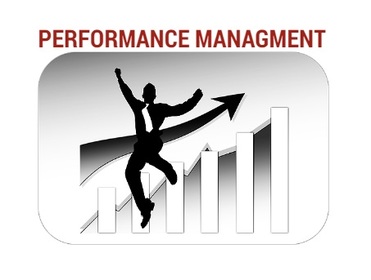|
Flexi time, home based jobs and remote workforces are a growing trend in South African businesses. While this type of flexibility is a selling point for employers and something that workers are actively seeking out, companies also need to consider how this can change the way they manage their payrolls, says Arlene Leggat, Executive at the South African Payroll Association (SAPA). “Like elsewhere in the world, the way in which we work is changing. People want a better work-life balance and they want to be able to work how, where and when they like. An increasing number of South African businesses are accommodating these needs not only to attract and retain talent, but out of necessity,” says Leggat. The 2017 TomTom Traffic Index showed that cities such as Cape Town and Johannesburg are the most congested cities in the country and people lose days and possibly weeks each year due the time they spend in their cars travelling to and from work. This congestion also has a broader impact on the economy. According to former Johannesburg mayor, Parks Tau, the economic impact that results from congestion in South Africa is over R1-billion per year. “Spending hours in traffic each day, whether travelling in one’s own vehicle or using public transport, is not conducive to having a good work-life balance and it’s not helping a company’s bottom line or the South African economy. The technology that we have at our disposal, such as smartphones and internet connectivity at home, means that for many roles it’s no longer necessary to work from an office every day,” says Leggat. Switching to output-based deliverables One way that a remote workforce impacts payroll is through the lack of work time indicators that have traditionally been drawn from access control and/ or time and attendance systems. If a company relies on security systems to track the movement of staff to determine their remuneration, then they may need to consider other ways of measuring a person’s output. “A business that wants to enable a remote workforce can’t function as a clock watching shop. Employers need to not only be more trusting and open minded for this to work, but they will need to restructure many employees’ roles so that their remuneration is based on Key Performance Indicators and output as opposed to time spent on the premises,” says Leggat. A solution that companies can consider is to enforce ‘core business hours’ for all employees, regardless of where they are based. A company could, for example, make their core business hours from 9am and 2pm and office-based as well as home-based workers are required to be online and available for meetings and calls during these times. Trust, responsibility and accountability is key Before overhauling your business structure to include remote working, companies need to fully understand how they are going to assess employees’ output and time-based work. “There are ways to track the time a person spent on a company’s network or systems, but instead of policing people, it’s better to create a trusting relationship with employees so that responsibility and accountability issues are understood and ironed out from the beginning,” concludes Leggat. ENDS MEDIA CONTACT: Idéle Prinsloo, 082 573 9219, [email protected], www.atthatpoint.co.za For more information on SAPA please visit: Website: http://www.sapayroll.co.za/ Twitter: @SAPayroll LinkedIn: The South African Payroll Association
0 Comments
 It’s not uncommon for a payroll to be consistently managed so poorly that workers threaten to strike over incorrectly administered pay. Often, the person administering the payroll is not adequately qualified for the job. Lavine Haripersad, a Director of the South African Payroll Association (SAPA), says such risks are why hiring accredited payroll practitioners is so important. Yet, many employers don’t realise how much skill it takes to run a payroll. “There are literally hundreds of legal requirements and specialised procedures to follow,” she says. “It’s therefore critical that organisations have professional payroll administrators who know, understand and can practically implement them.” So what do the top payroll administrators know (that business managers sometimes don’t)? Correct Procedure Payroll consists of various processes that must be correctly executed. “Qualified payroll administrators know these processes intimately,” says Haripersad. “These processes include record keeping, employee take-on, month-end procedures, year-end procedures, and more.” Calculations There are many complex payroll calculations related to tax, medical aid, pension funds, provident funds, allowances, reimbursements, deductions or bonuses. A payroll administrator knows how to perform them in accordance with the latest legislative requirements. The law Payroll is governed by an extensive set of legal and regulatory requirements. Payroll administrators are trained in the law and ethical governance, and keep themselves updated on new standards as part of their duties. “So they act as advisors to their organisations, guiding them in the right direction to avoid legal problems,” says Haripersad. Information management Payroll information and data must be collected, stored, secured, destroyed and used in accordance with various laws and accepted procedures. “The safeguarding of employee data must adhere to the Protection of Personal Information Act,” warns Haripersad. The proper information must also be submitted to the government at defined intervals. And correctly calculated payroll aggregates must be reported to accounting for recording in the general ledger. “Payroll administrators are well versed in the function of information inside and outside the organisation.” Tax Employee tax is so critical it demands special attention and skills only a professional payroll administrator can provide. This is especially true of larger organisations where the taxable portion of intricate remuneration, allowances, expense claims, deductions, bonuses or perks schemes is difficult to determine. Ethical practices Accredited payroll administrators are specifically disciplined in ethics and bound to the association’s Code of Professional Conduct. Not only do payroll administrators have an authoritative standard to work to; employers also have in SAPA a means to resolve unethical or unprofessional behaviour. The same can’t be said for non-certified administrators. Project management Payroll administrators are also trained to work in dynamic environments like project management where each payroll project might be different from the last. They therefore have project management training and can often act as project administrators. Strategic advisors Overseas companies see payroll for what it is - a key business enabler. International payroll administrators can work towards a Master's Degree in payroll management and provide direction to national and global payroll initiatives. But even a single organisation can derive such value from a well-trained payroll administrator. Payroll administrators offer a wealth of knowledge that an employer can leverage to their benefit. Says Haripersad: “If organisations see payroll administrators as managers rather than workers, they will appreciate the strategic value they stand to gain from their input.” ENDS MEDIA CONTACT: Idéle Prinsloo, 082 573 9219, [email protected], www.atthatpoint.co.za For more information on SAPA please visit: Website: http://www.sapayroll.co.za/ Twitter: @SAPayroll LinkedIn: The South African Payroll Association  By: Moira du Plessis, sub-committee member, South African Payroll Association The militant and often dreaded appraisal method of evaluating employee performance is facing its demise. Today, performance is measured using a management style that works with employee, team and manager to create a more holistic representation of deliverables and productivity. This is a trend driven by the influx of a younger generation of employee that prefers an open-minded approach in line with the new performance management style. Research also increasingly shows that the successful assessment of employee performance is about coaching, recognition and ongoing discussion. Nowadays its referred to as performance management, a form of one-on-one, two-way communication between manager and employee which helps to fill the gaps. It is a systematic process by which a company involves its employees, as individuals and members of a group, in improving organisational effectiveness in the accomplishment of agency mission and goals. It therefor no longer consists of a meeting between manager and employee where the aforementioned gives scolding feedback on a person’s performance. A changing landscape The difference between the old school appraisal and the modern performance review is down to management and engagement. The former often disempowering staff, leaving them feeling as if they’ve had little opportunity to respond or grow. The latter offers a chance for the employee to create a clear plan for their career path, communicate specific interests and strong points to the manager and potentially focus on how best to utilise these strengths to grow within the company, thus very beneficial in terms of employee growth and satisfaction. The manager can relay where they think the employee’s skills and abilities are best directed and the employee can decide whether or not they agree. For staff who work in payroll, an additional element of the review is to prepare them for the new financial year’s targets. Any performance management system must embrace the value payroll provides to better enable growth and productivity, encouraging staff to use their intellects more and do a wider scope of work. Considering that a significant part of any performance management process is to allow a person to evaluate their own performance and plan their potential for the next three years, the importance of payroll engagement is clear. Globally, payroll is seen as a strategic role, which provides essential insight into management, finance and employee remuneration. If the payroll employee is empowered, they can bring inordinate value to the business. A ripple effect Further important to not is that performance management is far broader than merely assessing a person’s achievements throughout the year. A manager can impact on the performance of their teams by being productive, proactive and fair, creating a ripple effect in terms of leadership and setting standards. It is also important from a management point of view to treat everyone in a company the same, that way all persons at all levels feel valued and this improves employee morale and loyalty, therefore leading to increased performance. In addition, taking care of employee hiring wellness is not only beneficial in terms of retention, loyalty and productivity, it is becoming a defining factor when it comes to and attracting talent – if employees feel cared for on all levels beyond just work, they also perform better. A positive work atmosphere with constructive performance review parameters and long-term support benefits employee, business and bottom line. ENDS MEDIA CONTACT: Idéle Prinsloo, 082 573 9129, [email protected], www.atthatpoint.co.za For more information on SAPA please visit: Website: http://www.sapayroll.co.za/ Twitter: @SAPayroll LinkedIn: The South African Payroll Association |
Welcome to the South African Payroll Association newsroom.
Archives
July 2020
Categories
All
|

 RSS Feed
RSS Feed